Childcare that Breaks Age Boundaries
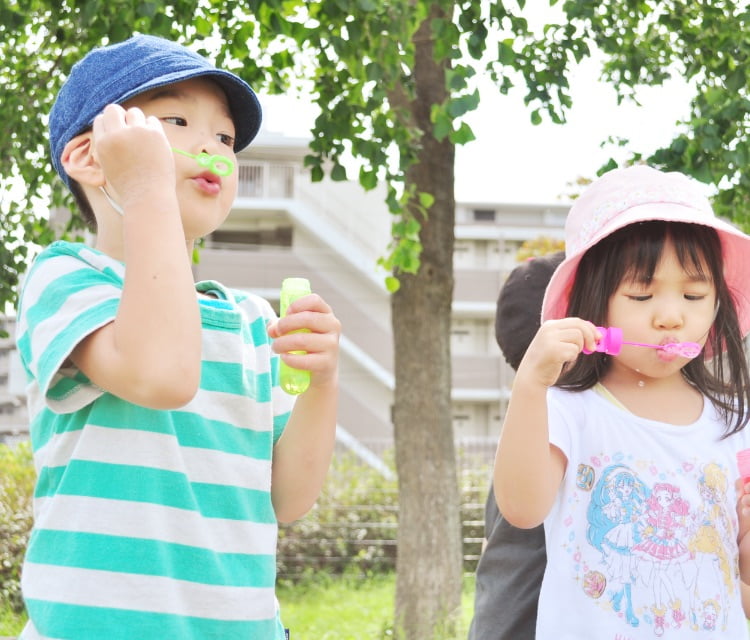
Having important experiences while building sociality
Here at Shinaikai, we use a system called ‘Childcare that Breaks Age Boundaries’. To put it simply, 3, 4, and 5 year old students are split into 2 classes of about 25 students each. This challenges them to overcome age gaps and creates an atmosphere where they can form relationships similar to siblings and learn from each other.
What is Childcare that Breaks Age Boundaries?
A class with differing ages and stages of development where all sorts of play and interaction unfold. Caregivers also oversee a wide variety of play and activities.
5-Year Olds who may not be skilled in certain areas can participate in easier activities and feel a sense of achievement through their actions, and inversely 3-Year Olds who possess certain skills or particularly curious children can participate in the older children’s activities as well.
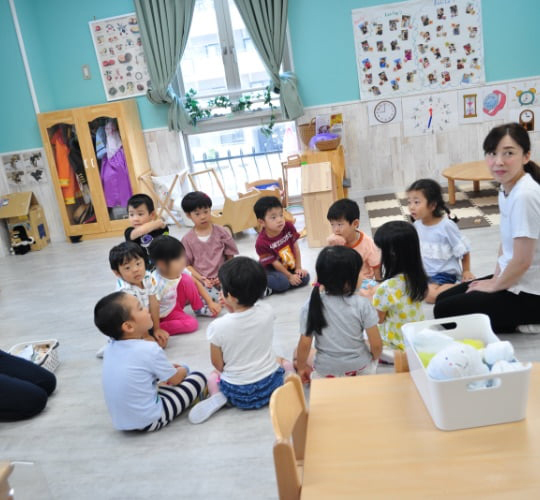
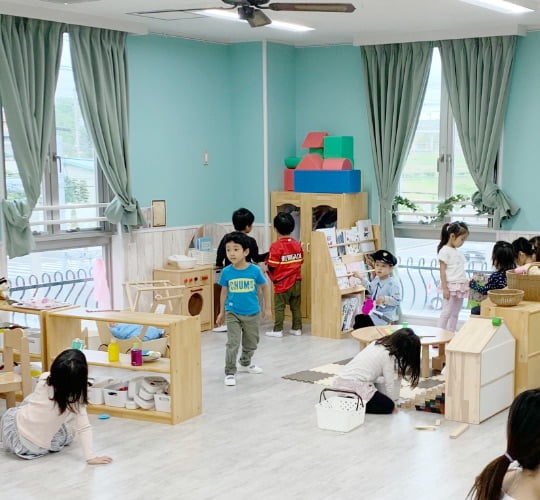
Who children play with or spend time around isn’t decided by age.
Similar interests, different capabilities, shared feelings or personalities… These and other aspects are big factors.
3 and 4-Year Olds first spend time in a class with children who are older than them, and when they become older, they spend time with children younger than themselves. They can experience all sorts of societal positions naturally (such as being a leader, receiving instructions, managing relationships, etc.) While they develop their individual self, they also experience important aspects of society and obtain sociality.
Benefits of Childcare that Breaks Age Boundaries


Learning through ‘vertical’ relationships
Younger children watch and mimic the actions of older children, naturally broadening their interests. Older children can learn to interact kindly with children younger than themselves.Through interacting with children in a wide range of ages, they can expand their world and learn about the connections between people and the appropriate way to conduct themselves around others.


Building friendships which disregard school year/level
During childhood, depending on their month of birth, children may be in the same school year, yet still be at different stages of development. In Childcare that Breaks Age Boundaries classes, different from traditional ‘school-year’ systems which separate by grades, children can interact with friends of similar nature who they get along well with.


An environment where they can learn naturally
Caregivers support a large range of ages in a way that allows them to naturally expand their own interests. For example, if dinosaurs are popular in a certain class, caregivers can provide more materials such as dinosaur encyclopedias and picture books while including dinosaur themes in other activities and play time. They support the learning and growth of children using content which interests the children.
Thoughts regarding the 3 Years of Infancy (0~2-Year Olds)
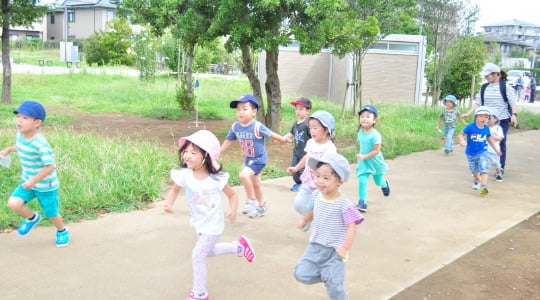
Use the power of the group.
〜Using the vitality cultured by the One-On-One system to bloom〜
Being raised in a setting tailored to the individual helps with shaping and the acquisition of daily routines. We believe that children who feel emotionally safe and secure, and acquire a sense of independence become more sociable. They interact with their surroundings directly by choosing what interests them personally. They purposefully select which play and activities to participate in, and learn from them.
A child’s basic learning abilities through playing are:(1) Feel interest (2) Focus (3)Continue (4) Imagine...Through these, they develop their concentration, memory, imagination, creativity, ability to think, ability to plan, organization, cooperation, and more. Young children learn about all of these through the process of playing.
The Importance of Playing
During the toddler stage, children learn more about friendship and begin playing in more complex ways. Children develop many important abilities through playing, such as: logical thinking based on thought, memory, communication, and much more. During the developmental period, daily ‘Play’ is irreplaceable.
The ideal play for young children is play which they autonomously expand upon. Expanding upon a single small interest or discovery by seeing and listening, seeking to learn more about it and delving into the topic themselves, and discovering how it links to other themes helps to nurture their thinking ability and creativity.
Even in terms of physical play, children learn through injuries and other experiences. When a mistake leads to an injury, they think about how they can avoid the same outcome in the future. This way of thinking is even more important once reaching adulthood as it’s directly linked to problem solving.
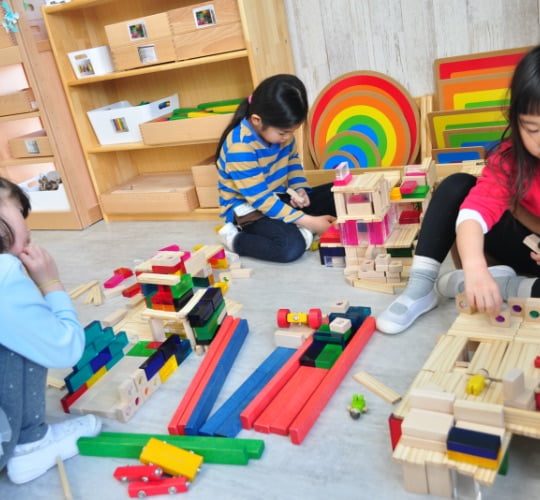
Typical Daily Flow of Toddler Class
9:00
Caregivers provide group child care from 7:00a.m. From 8:30a.m. children are separated into classes and begin their daily activities.
Each parent/guardian and child is personally greeted, and caregivers inquire about any changes in the child’s condition or mood.
10:00
Through a curriculum based on daily life, children nurture their sensibility through: Nursery Songs・Numbers・Reading・Environmental Awareness・Physical Education・Drawing.
11:00
The infant class starts lunch slightly early. We carefully watch to ensure that children understand the importance of correct posture/manners, and help them learn the use of spoons, chopsticks, plates, etc.
12:00
During nap time, caregivers write a daily journal directed to parents/guardians detailing daily events/happenings and display it in the hallway.
15:00
Children wake up, fold up futon mats, and eat a snack.
16:00
Until they are picked up, children play indoors or run around and play in the garden.
17:00
〜19:00
Children begin heading home. Caregivers discuss with parents/guardians about the day’s events and see everyone off in a friendly way with “See you tomorrow!”

